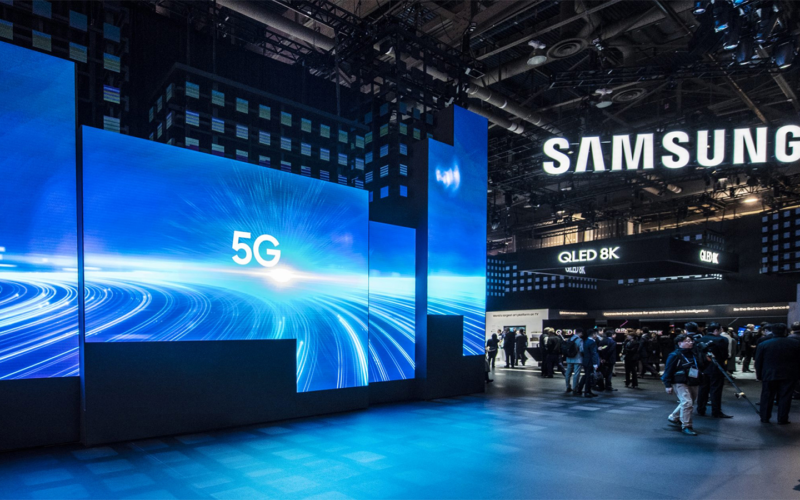Samsung Electronics, one of the world’s leading technology giants, is reportedly in talks to acquire Nokia’s mobile network infrastructure division. This potential acquisition has sent ripples through the telecom industry, as it could significantly alter the competitive landscape in the global network equipment market. Here’s what this move could mean for both companies and the broader telecom sector.

Samsung at a technology exhibition. Photo: Sammobile.
Why Samsung is Interested in Nokia’s Network Infrastructure Division
Samsung’s interest in Nokia’s network infrastructure division stems from a strategic push to expand its presence in the telecom equipment market. While Samsung is globally recognized for its smartphones, TVs, and consumer electronics, it has been making steady strides in the telecom sector, particularly in 5G network technology.
Nokia, on the other hand, has a long-standing reputation in the telecom industry. Its mobile network division is one of the key players in providing infrastructure for 5G networks, competing with giants like Ericsson and Huawei. By acquiring this division, Samsung could bolster its 5G portfolio, making it a more formidable competitor against its European and Chinese rivals.
What This Acquisition Could Mean for Nokia
For Nokia, selling its mobile network infrastructure division could represent a strategic shift. Over the years, Nokia has struggled with profitability in the face of intense competition and rapidly changing technology landscapes. By offloading this division, Nokia could refocus its resources on other growth areas, such as software, licensing, and digital health, which may offer higher margins and less capital-intensive operations.
Moreover, the cash influx from the sale could strengthen Nokia’s financial position, allowing it to invest in new technologies or return value to shareholders.
The Impact on the Telecom Industry
If Samsung successfully acquires Nokia’s mobile network infrastructure division, the telecom industry could witness a significant reshuffling. Samsung would likely become a much stronger player in the 5G market, which is currently dominated by a few key players.
- Increased Competition: With enhanced capabilities in network infrastructure, Samsung could intensify competition in markets where Nokia, Ericsson, and Huawei have traditionally been strong. This could lead to more competitive pricing and faster innovation, benefiting telecom operators and consumers.
- Geopolitical Implications: The telecom equipment market is not just about technology; it’s also about geopolitics. With growing concerns over the security of Chinese-made equipment, many Western countries have been looking for alternatives. A strengthened Samsung could serve as a reliable partner for these nations, offering a viable alternative to Huawei.
- Innovation in 5G and Beyond: Samsung’s expertise in semiconductor technology, combined with Nokia’s experience in network infrastructure, could lead to significant advancements in 5G and future network technologies. This merger could accelerate the rollout of 5G networks globally and pave the way for the next generation of connectivity.
Potential Challenges and Considerations
While the acquisition could offer numerous benefits, it is not without challenges. Integrating Nokia’s network infrastructure division into Samsung’s existing operations would require significant effort and investment. Cultural differences, operational synergies, and the management of a global workforce are just a few of the challenges that Samsung would need to navigate.
Additionally, the deal would likely be subject to regulatory scrutiny, particularly in Europe, where Nokia’s operations are a significant player. Antitrust concerns could delay or even derail the acquisition if regulators believe it would reduce competition in the market.
Admin.

